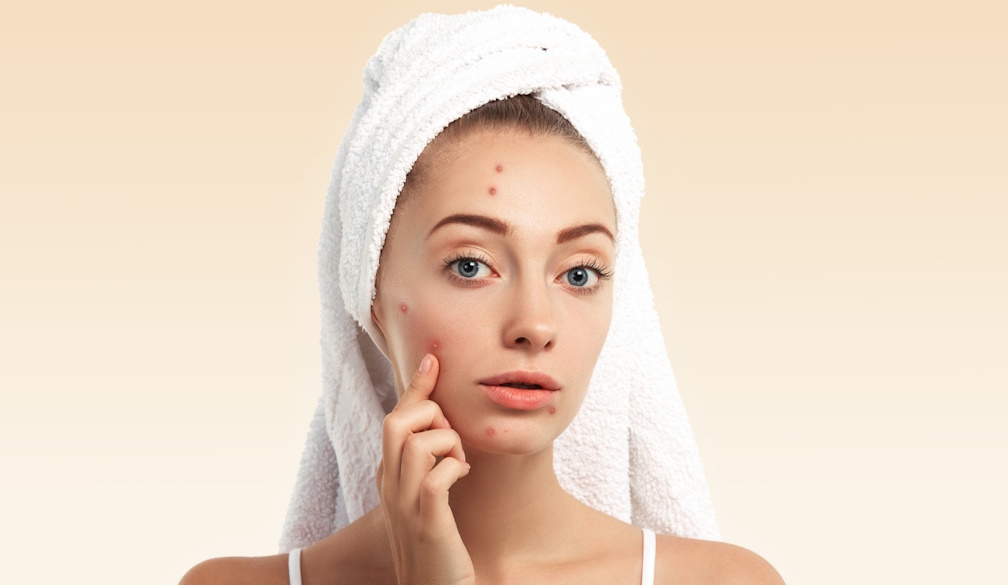Unveiling the Triggers of Acne

Acne is a skin condition that develops when the hair follicles on your face get clogged with grease and dead cells. It may lead to either whiteheads or blackheads, as well as pimples. Acne is a skin condition that may affect individuals of any age, although it is most prevalent in adolescents.
This blog will explain what causes acne and provide some treatment options.
Understanding Acne
Acne may be difficult to cure despite a lot of treatment options being available. The lumps and pimples heal slowly, and just as one starts to fade away, it seems that another appears in its place.
Acne may leave scars on the skin and create mental discomfort, depending on the severity of the condition. The sooner you begin therapy, the sooner you can start to look and feel better.
What are the many acne forms, and how do they differ?
If you suffer from acne, you could have more than one kind of blemish.
Blackheads and whiteheads, also known as comedones, are the types of acne lesions that are most frequent.
Blackheads, also known as open comedones, are comedones visible on the skin's surface. The darker hue at the peak of these blemishes is not caused by dirt but rather by the oxygen in the air.
Beneath the outermost layer of the skin, closed comedones, known as whiteheads, appear as little, raised pimples. Their colour is often indistinguishable from the rest of the skin.
The following are examples of inflammatory lesions, all of which have a greater potential to leave scars on your skin:
-
Papules: Hair follicles that have been irritated or infected might lead to the development of these little, red, raised lumps.
-
Cysts: Pus is contained inside these enormous lumps that have formed under your skin, and the condition is almost always excruciating.
-
Pustules: Pus may be seen at the tip of these little red bumps.
-
Nodules: These definite bumps, which may be rather painful, form just below the outermost layer of the skin.
How to Combat Acne
In most cases, treatment for acne is determined by how severe it is.
-
Mild Acne
Over-the-counter lotions, spot treatments and cleansers containing medicinal ingredients, such as salicylic acid, may help treat mild acne quickly.
The following is a list of substances that are often found in acne creams and gels:
-
Salicylic acid: This component assists in exfoliating your skin, reducing the likelihood that acne-causing bacteria may get trapped inside your pores.
-
Benzoyl peroxide: This component eliminates the germs that cause acne while also aiding in the drying out of existing zits and preventing the formation of new ones.
-
Moderate Acne
If you still have problems after taking acne remedies available over the counter for some time,, you might want to seek treatment from a specialist.
Your dermatologist or another qualified medical practitioner may write you a prescription for medicine to alleviate the issue. By getting medical help you will reduce the chances of scarring.
A skin specialist may offer the following treatments for you if your acne is moderate:
A stronger dose of benzoyl peroxide, which may require a doctor's prescription.
Oral antibiotics or birth control pills.(if you are female)
Antibacterial medications such as erythromycin and clindamycin.
Retinoids, like retinol and similar substances.
In most cases, you will only take antibiotics over a limited period of time in order to prevent your body from developing resistance to the medication, which might make you more susceptible to infections in the future. You can get repeats of these medications through online scripts from various online healthcare platforms.
-
Severe Acne
A skin specialist may propose a therapy that includes a combination of any of these options for persistent acne, depending on the severity of the condition:
Antibiotics taken by mouth
Topical retinoids
Topical antibiotics
Benzoyl peroxide
Your doctor may also recommend Isotretinoin, also known by the names Roaccutane or Oratane. However, this is only referred to patients with acne that has not responded to any other treatment. These medications are very strong and have the potential for adverse effects if used long-term.
Severe, cystic acne can be extremely painful and may demand your immediate attention.
Natural Acne Management Methods
You've undoubtedly heard of a wide variety of over-the-counter treatments for acne. However, as you may already be aware, these treatments aren't always effective, and some of them may even make your acne worse.
Instead of placing toothpaste on the skin consider some of these other home remedies to help clean up acne as well as avoid further outbreaks:
Use aloe vera on the pimple.
Apply a mask made of honey.
Put some tea tree oil on it.
Drink green tea.
Stay hydrated
Keep your hands away from your face.
Never pick or squish your acne. Ever. It increases the likelihood of scarring, and it also has the potential to transmit germs and excessive oil.
However, it is important to remember that home remedies may or may not always be successful, and if your acne is getting worse by the day or affecting your self-confidence, it might be time to book an online doctor’s appointment. If you’d like to see a doctor in person but need time off work to do so, online healthcare services can provide online medical certificates allowing you to take time off work.

















